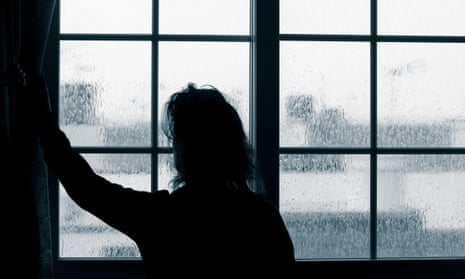Every winter, as the days get shorter, darker and colder, millions of Americans suffer debilitating psychological symptoms that can interfere with every aspect of life at home, work and school.
This winter, seasonal affective disorder (SAD), a form of clinical depression affecting at least 5% of American adults, will strike after a summer of unprecedented losses and turmoil, and amid mounting fears of further health, economic and political chaos.
“SAD is a huge problem at the best of times, and this is not the best of times,” said Norman Rosenthal, the South African psychiatrist who first described SAD or winter depression in the 1980s. “I’ve been in the United States for 45 years, and these are among the toughest times I’ve seen.”
So far Covid has killed almost 190,000 Americans and left tens of millions of families struggling to get enough food as a result of unprecedented job losses that could take a decade to recover from.
The pandemic has upended every aspect of normal life for many people, resulting in politicized culture wars, armed vigilantes on the streets and a rise in mental health problems such as depression and anxiety.
According to one study, failing to heal the nation’s economic and emotional pain and suffering could result in as many as 75,000 excess deaths of despair – lives lost as a result of substance misuse and suicide – over the next decade in the US.
A sense of control and predictability are fundamental to psychological wellbeing. But everything surrounding this pandemic – public health messaging, vaccines, economic security – is steeped in uncertainty.
Yet for many, the long summer days have provided some relief, as sunlight, exercise, social contact and green spaces all boost emotional and mental wellbeing.
“Being outside has felt like a safe place to be,” said Vaile Wright, the American Psychological Association’s senior director of healthcare innovation. But winter is coming and uncertainty is growing – a worrisome combination for mental health, warn experts.
“People are really suffering and struggling as a result of the grief and losses from Covid, and now comes winter with shorter, darker days, it’s a double whammy and we expect the general sense of unhappiness to be amplified by SAD and the winter blues. It’s going to be a big problem,” said Rosenthal, professor of psychiatry at Georgetown University School of Medicine.
A lack of sunlight induces symptoms of SAD such as insomnia, lethargy, poor concentration, irritability and suicidal thoughts. The winter blues are milder, but affect about three times as many people.
“The real challenge is the immensity of it all, the despair brought on by the weather and the uncertainty of the pandemic which feels like it will last forever. The countermeasure is to actively focus on things in our control to reduce feelings of helplessness,” added Wright.
Daylight walks, artificial lights, healthy eating, regular sleep and maintaining virtual or distanced social connections will help stave off the sadness, according to mental health experts. But, the holidays could be tough. Thanksgiving, Hanukkah and Christmas will look very different for many families this year because of ongoing concerns about the virus, travel restrictions and financial woes.
Even though the holiday season can be stressful, for most people it provides opportunities to celebrate, reminisce and reconnect emotionally and physically with loved ones.
“Everyone needs to start preparing themselves that they might not be together, and try thinking about it as an opportunity to do new things, rather than something else that’s been taken away,” said Wright.

It’s not just the pandemic. Rosenthal also points to current fears about racism and voter suppression in this year’s elections – especially the uncertainty surrounding the safety of in-person voting and postal ballots being counted – as additional stressors that could exacerbate mental distress.
A lack of political consensus on a range of critical issues including police brutality, the post office, wearing face masks, unemployment benefits and going back to school have fuelled the unsettling sense of chaos, division and uncertainty.
Amid mounting individual and collective mental suffering, some people will need professional help but access to treatment for mental health and addiction problems has always been patchy.
The economic fallout from Covid has left states facing a cumulative budget shortfall of $555bn by 2022, according to the Centre on Budget and Policy Priorities. And some cities and states have proposed axing mental health services in order to help balance the books despite the looming wave of despair.
In New Jersey, tens of thousands of parents and child advocates have condemned a proposal to axe a longstanding school-based youth services programme which provides mental health counselling, substance misuse education and recreational activities for at-risk high schoolchildren. The state claims other services will fill the gap.
Nationally, a sharp rise in child abuse and counselling referrals is expected when schools reopen following the sharp decline during lockdown when children were forced to stay at home without adequate supervision and support.
Debra Wentz, president of the New Jersey Association of Mental Health and Addiction Agencies, said: “Children and families are traumatized, there is so much pent-up demand that mental health and addiction services should be a top priority. We need to sustain and increase services, this is the wrong time to cut them.”
In the US, the National Suicide Prevention Lifeline is 1-800-273-8255, or you can text HOME to 741741 to connect with a crisis text line counsellor. In the UK, the Samaritans can be contacted on 116 123. In Australia, the crisis support service Lifeline is on 13 11 14. Other international suicide helplines can be found at www.befrienders.org
